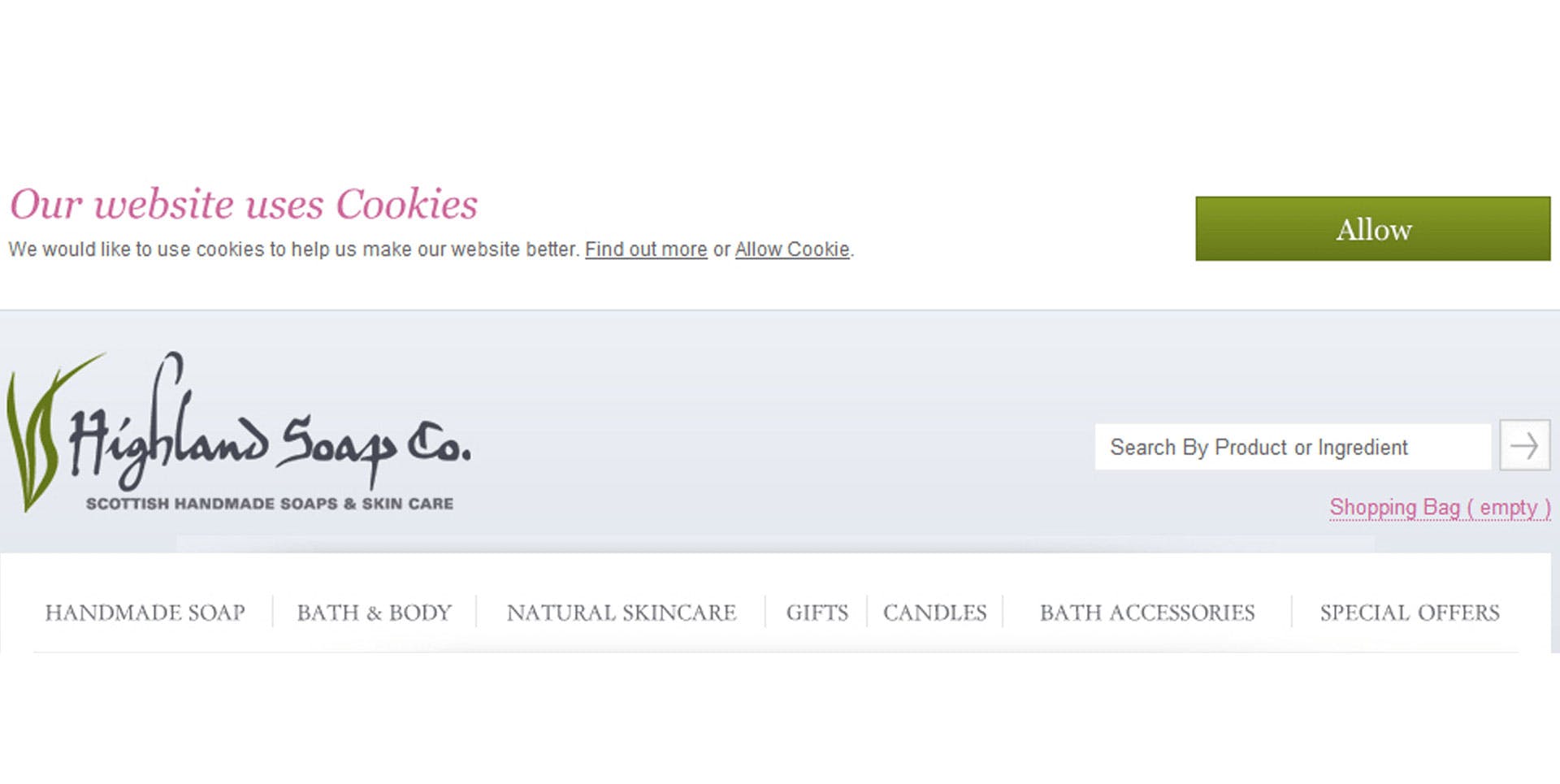What are Ecommerce Companies doing about Cookies?

Cookie law is still confusing a lot of businesses, especially ecommerce companies where implementing an opt in policy can be problematic. For ecommerce retailers cookie law is proving tricky for a number of reasons:
1. Ecommerce companies rely on Google Analytics. They need to see where customers are coming from and what online marketing activity is proving most successful, driving traffic and sales.
2. Affiliate programmes use cookies and most successful ecommerce retailers rely on these to generate sales.
3. There are so many cookies that websites have come to rely on for their day to day running. Addthis, Youtube and many others generate cookies. If a customer does not agree, these programmes may need to be disabled.
As far as we have seen there are a number of different approaches to cookie policies. We have highlighted some of these below:
1. Getting full agreement from customers before tracking
You may have noticed that Digital Six has has created its own cookie policy. We will not track our customers on Google Analytics unless they select the agree button. This is the approach that our client, The Highland Soap Company, has also chosen.

For many ecommerce companies there are big downsides to this approach. The first is that affiliate programmes can’t be utilised until a customer agrees. We doubt that affiliates would be comfortable with this strategy and this may cause them to only market websites that don’t have an opt in cookie policy.
The other main downside is that the ecommerce site will only get analytical data on customers that opt in. This will skew data, especially as you may find that only 10% of customers opt in to cookies.
A prominent cookie policy may scare off international customers, especially those from outwith the EU where these cookie policies are not required.
2. Offering a prominent link to the cookie policy with instructions for how to disable them
House of Fraser is opting for this approach. They give customers a link to a cookie policy in the header with details of how to disable cookies entirely if they wish. Note that if customers disable all of their cookies they will not be able to buy from the website at all. They will only be able to browse.

3. Including an unobrusive popup bar giving customers the opportunity to opt out.
This is the approach that John Lewis seems to be taking. Customers can pick and choose cookies that they would like to disable and John Lewis makes it clear that if they disable cookies entirely they will be unable to purchase.

4. Adding a cookie policy in the footer
This seems to be the most common approach with retailers offering a link to their cookie policy in the footer. For most retailers that go for this approach, I believe they are waiting until major online retailers make the first move and get feedback from the ICO. Then they will follow with something similar.
Online retailers must implement something, as the ICO may start implementing fines. I would expect that some of the big high street brands may be the first to get fined and they seem to be doing very little to comply. Watch this space.






